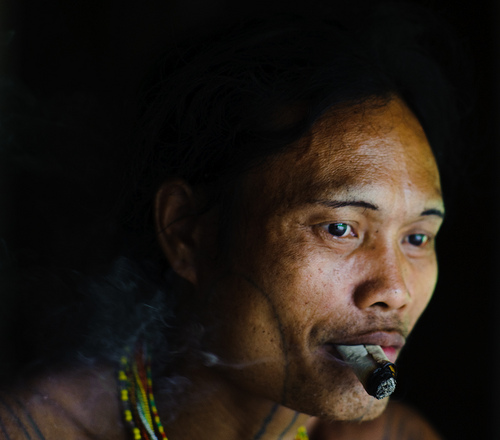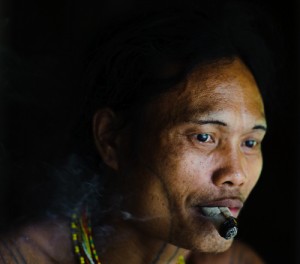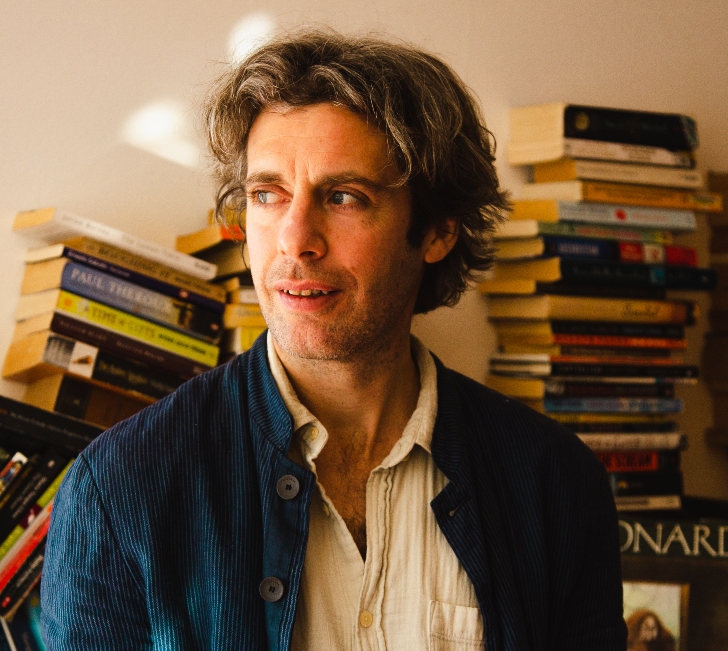
I was reading in the National Geographic the other day about an anthropologist who was attempting to ascertain the territorial borders of an Amazonian tribe known as the Flecheros. Flecha meaning arrow in Spanish, they got their name as each time anyone approached their area of the jungle, they opened fire. But much as anthropologists used to dream of making first contact with undiscovered tribes, the aim this time was to establish a protection zone around them so that they need never be exposed to a world that would destroy their way of life.
I could only support this noble intention as I was in Colombia the last time a tribe was cast out of the jungle onto the merciless modern world. The Inichua or the Believers as they came to be known – had been living peacefully in the rain forest until fighting in the never-ending Colombian civil war had forced them off their land – spears and blowpipes weren’t much match against semi-automatic weapons.
I remember seeing the first of them arrive in Bogota; they walked barefoot through the streets oblivious to the traffic, clad only in loincloths and carrying bundles of papaya and yams. There wasn’t the trace of a wrinkle or worry-line on their faces and though they had little cause to smile, when they did they revealed sharp, white teeth that had never known decay on a hunter-gatherer diet. While they might have been expected to be nervous at the wonders of civilisation – none of them had seen so much as a plastic bag before, let alone electricity, cars and sky scrapers – rather they bore their exile stoically, their expressions of deep calm betraying their sadness only by a gentle twinkle in the eye.
They were to be seen making camp at night in the parks, huddled around small fires and singing melancholy songs. They survived by roasting what vegetables they’d been able to gather from the floor of the markets and, as was deduced by the bones found around their fires, they also ate stray cats.
A few nights later on TV, an anthropologist by the name of Luis Gonzalez who had done field research with the Inichua was given a 45 second soundbite on the news. Gonzalez was a heavyset man with a bushy beard to compensate for his baldness and he was clearly upset. He clamoured for the government to take immediate action to protect this ‘uniquely vulnerable people’; the Inichua were known amongst academics as ‘the Believers’, he explained, because their language contained no words for ‘to lie’ or ‘to deceive’. In their natural jungle habitat they were accustomed to taking each other at their word – when one of them yelled ‘Jaguar!’ they would all clamber up a tree. When someone cried ‘bee’s nest!’ they all came running for the honey.
How, Gonzalez, asked, could they be expected to prosper in our tricky, deceitful society?
But Colombia was a deeply troubled country. There was a civil war with 2 different guerilla groups, para-militaries out of control and autonomy of the cities threatened by powerful drug cartels – the fate of the Believers was hardly considered a matter of much importance and the authorities let human nature resolve the problem for them.
It came as no surprise that the women were the first to go. Suddenly they were seen dressed up in [[provocative clothing and poorly-applied make up, standing on street corners under the watchful eyes of the local pimps. The Inichua men were soon to be found working 18 hours a day on construction sites across the city in return for a handful of bananas.
Other Believers were arguably luckier when they were rounded up by para-military and guerilla groups and taken back to the jungles to fight in the civil war. They were known to be fierce warriors as they fought tooth and nail for what they believed to be a noble cause – Law and Order or Freedom and Justice, depending which side got to them first.
A couple of months after most of the Inichua had disappeared from the streets, I was in a bar and saw a a news presenter on the TV who could barely keep the smile off his face as he announced that a Believer had been arrested carrying 10 kilos of cocaine across the border. when asked why he had done it, the poor sod had apparently replied: ‘they told me to.’
I heard someone cough rather violently and I realised that just a few metres away was sat the anthropologist, Luis Gonzalez. I ordered us both another beer and pulling up a stool I said:
‘If only they had listened to you.’
‘They had no money, no vote and no influence – why would anyone have listened to me?’ Gonzalez said without even turning around. He drank the beer put in front of him without question and then turned to me with a weary expression.
‘The funny thing is,’ he said, ‘When I came back from living with the Inichua, years ago, I thought I would have a hard time readjusting to modern life. But you know what? I saw that the Believers are everywhere – just look around you! They’re praying in the churches, marching in armies, queueing in department stores – everywhere you look there are people believing in almost everything they’re told. The only reason they don’t make it onto the news is because they don’t dress in loincloths.’
And with that, Gonzalez stood up, knocking over his stool and staggered out of the bar.
And if you believe the story you just heard… then well, you’ll believe anything.








